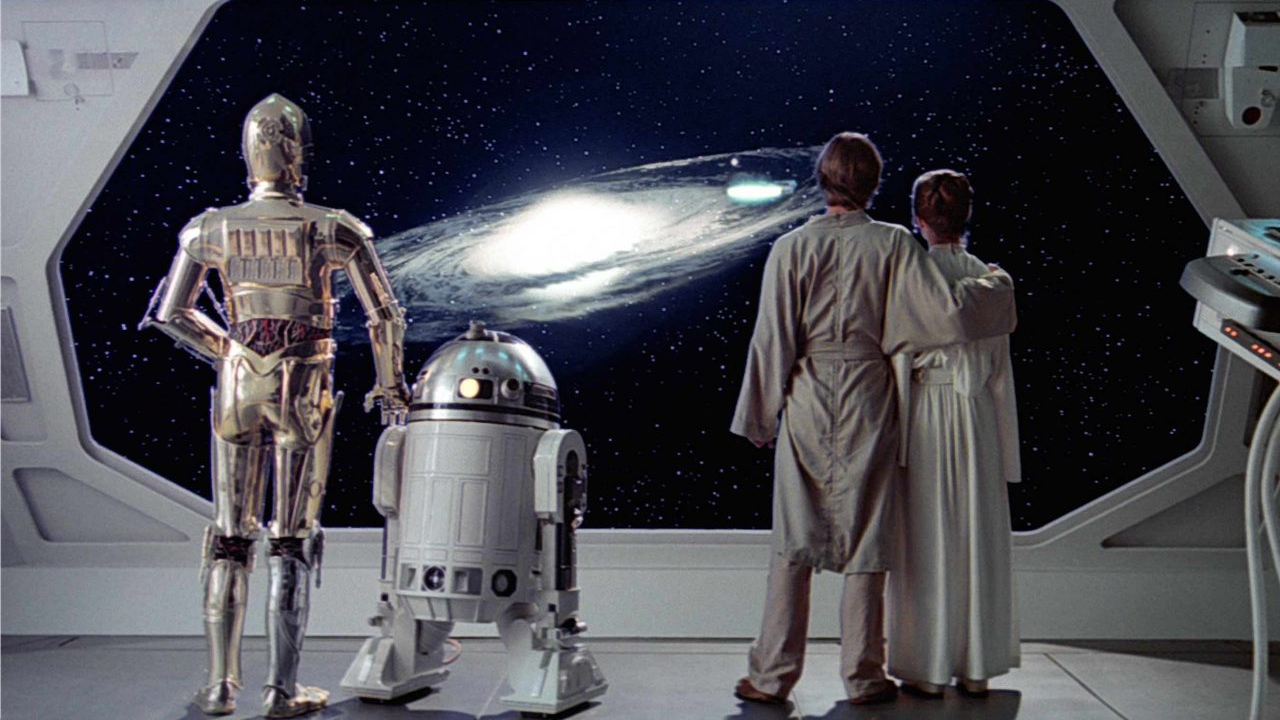Is 'Star Wars' Science Fiction?
Everybody thinks of Star Wars as in the genre of science fiction, or at least has heard of it referenced to as science fiction. But in many textbook definitions of science fiction, Star Wars doesn’t exactly fit. However, even if Star Wars doesn’t meet a standard definition of science fiction, it is arguable that Star Wars’ cultural and cinematic impact redefined the genre.
It’s difficult to specifically define science fiction. Wikipedia generally defines it as "a genre of speculative fiction that typically deals with imaginative and futuristic concepts such as advanced science and technology, space exploration, time travel, parallel universes, and extraterrestrial life." In school, I was taught that science fiction was a sub-genre of horror, where Earth or humanity was threatened. Other definitions include science fiction as the literature of the human species encountering change, whether it arrives via scientific discoveries, technological innovations, natural events, or societal shifts.
RELATED: 5 Anime That Were Influenced By ‘Star Wars’
Within all these definitions, we can see some easily identifiable stalwarts of the genre. Literarily, and in their cinematic forms, we have H. G. Wells, Jules Verne, and Mary Shelley (particularly her book Frankenstein) as key components of the genre. In these works, there is technology or an invader that is a threat. Margaret Atwood rejected the term science fiction, in spite of some of her books, such as the Handmaid’s Tale, falling within its possible boundaries.
At a glance, Star Wars doesn’t quite fit into these definitions. After all, the saga takes place “in a galaxy far, far away.” This removes the setting from Earth and humanity and sets Star Wars in a fantasy realm that does not have to abide by the realistic structures of fiction that stories set on Earth have. While there are humans in Star Wars, they are not bound to a planet like humans in most other science fiction/space works. There is no history or culture that binds them to a specific Star Wars planet. In spite of rumors of humans’ start on a core world such as Coruscant, they are the predominate race throughout the galaxy.
The logic of the science in Star Wars is more based in fantasy than science as well. The starships fly through space as if gravity doesn’t exist and with a largely unexplained hyperdrive. We are just told to accept what is happening in the world and with its science; which is more akin to fantasy and The Lord of the Rings than 2001: A Space Odyssey. Star Wars does not even use the term science fiction in its Disney+ catalogue.
To use a comparison, Star Trek is more of a piece of science fiction compared to Star Wars. In the television episodes and movies, Earth or humanity is threatened as the protagonists and their ships in Star Trek meet and interact with different worlds and species. The goal of the Enterprise and the other Star Trek ships is to protect Earth’s people and interests. After all, Captain Kirk is from Iowa and Luke Skywalker is from Tatooine.
But while Star Wars may not fit directly into these definitions of science fiction, its terminology, methodology, and how its viewed in popular culture still places it in the realm of science fiction. Star Wars has inspired so many films, in both science fiction and fantasy, that an argument can be made that Star Wars widened the genre.
This fits more into the Gernsbach definition of science fiction: "The formula in all cases is that the story must frankly be amazing; second it must contain scientific background; third, it must possess originality." Star Wars is closer to fitting into this definition than the prior ones, even if it can be argued that its character basis along the lines of Joseph Campbell’s Hero with A Thousand Faces limits the nature of its originality.
But even with that background, Star Wars is unique. It is at the top of the totem pole for movies and crowd pleasers, and leads the way in many defining characteristics of science fiction. In the end, the decision to view Star Wars as science fiction is up to the fan, the connoisseur, the patron. View the films as you wish and enjoy them no matter what genre they belong to.
READ NEXT: Were The Effects Of Order 66 On Clones Only Temporary?

